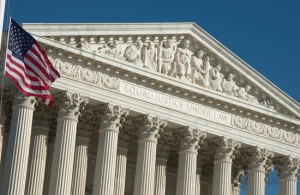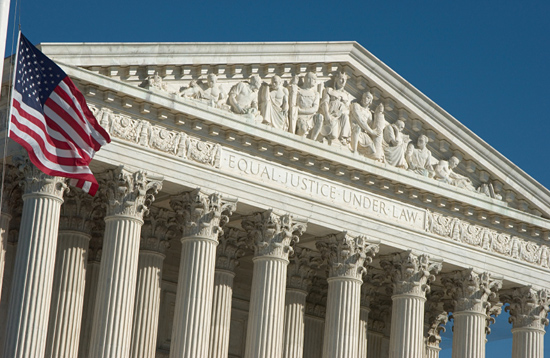 By Michael Doyle, McClatchy Newspapers –
By Michael Doyle, McClatchy Newspapers –
WASHINGTON — The Supreme Court agreed Tuesday to hear a politically charged challenge to affirmative action at the University of Texas.
The court’s decision gives conservatives another chance to reconsider the use of race in college admissions, and further drives the court into the middle of the presidential campaign.
“It is time for the court to take another look at this area of the law,” said Joshua P. Thompson, a lawyer with the conservative Pacific Legal Foundation, which opposes the university’s affirmative action plan.
The court already is preparing to hear a challenge in March to the Obama administration’s signature health care law. The affirmative action case will be argued during the next term, which starts in October, with the oral arguments perhaps occurring before the November election.
By adding the affirmative action challenge to its blockbuster year, the court also will spotlight the significant differences between former Justice Sandra Day O’Connor and the man who replaced her, Justice Samuel Alito. In 2003, O’Connor led the narrow 5-4 majority that upheld the University of Michigan Law School’s use of race in admissions.
The Constitution “does not prohibit the law school’s narrowly tailored use of race in admissions decisions to further a compelling interest in obtaining the educational benefits that flow from a diverse student body,” O’Connor wrote.
Alito, who replaced O’Connor in 2006, has voiced more skepticism about the merits of affirmative action. The latest case, called Fisher v. the University of Texas at Austin, will give Alito and conservative Chief Justice John Roberts Jr., who also wasn’t on the court during the 2003 case, a high-profile opportunity to recast the majority.
The Texas case arises from a challenge initially filed by Abigail Noel Fisher, a Caucasian woman who applied as an undergraduate to the University of Texas for the class that entered in the fall of 2008. Because she wasn’t in the top 10 percent of her high school class, she wasn’t guaranteed admission under the state’s college policy.
“She instead competed for admission with other non-Top Ten in-state applicants, some of whom were entitled to racial preference as ‘underrepresented minorities,’ ” attorney Bert Rein wrote in a legal brief. “Although Ms. Fisher’s academic credentials exceeded those of many admitted minority candidates, (Texas) denied her application.”
Fisher’s attorneys argue that her rejection and the preference given minority applicants violate the Equal Protection Clause of the Constitution.
A trial judge and the 5th U.S. Circuit Court of Appeals disagreed, in a sharply divided opinion. Following the guidance of the Supreme Court decision in the 2003 Michigan case, the appellate court said, Texas “evaluates each application using a holistic, multi-factor approach, in which race is but one of many considerations.”
“The current policy has produced noticeable results,” the 5th Circuit decision noted, observing that from 1998 to 2008 the enrollment of African-American students doubled, from 165 to 335.
Justice Elena Kagan, formerly the solicitor general in the Obama administration, has recused herself from the case. If the eight justices who are left to consider the case tie, the lower court’s decision will be upheld, a defeat for conservatives.







